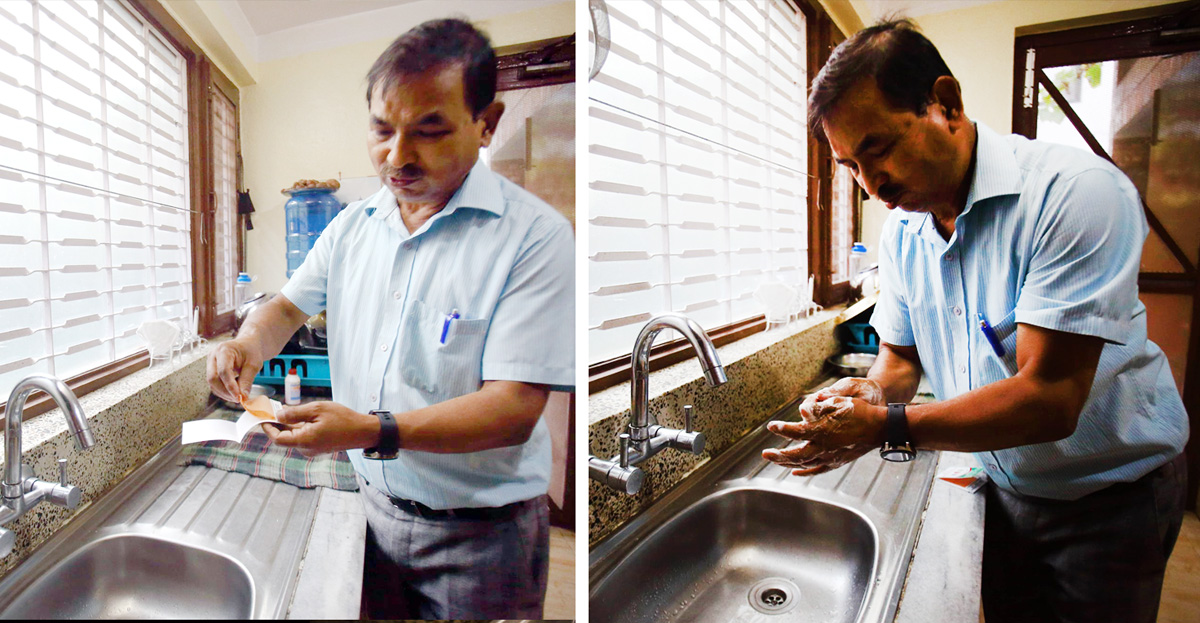Free soap to fight Covid-19

Nepal is reeling under an explosive surge of Covid-19, particularly Kathmandu Valley which is facing acute shortage of hospital beds, ICUs, oxygen and ventilators for the seriously sick.
But the pandemic has also brought out the best in people. Like sanitation expert Namastelal Bhumi Shrestha, who is convinced prevention is the only way to fight the virus.
For the past three months, Shrestha has been busy importing paper soap from India and distributing it free of cost to hospitals, banks and other frontline institutions in Nepal. His only regret: not being able to reach to the neediest, those who cannot even afford soap.
"One of the route of Covid-19 infection is through touch points, so I am trying to spread awareness by distributing soap for handwashing,” says Shrestha. “I haven’t been able to distribute it yet daily wage workers, the ones who need it the most.”
On the World Handwashing Day on 15 October, Shrestha did not only distribute the soap to the employees of various organisations he frequents, but also left more for them to redistribute elsewhere.
In his hometown of Bandipur, Shrestha aims to distribute paper soaps to all residents. In fact, he has already started to do so with the help of his nephew. He is also planning to distribute the soaps through ward offices and schools.
Shrestha who has been providing soaps for free of cost in Kathmandu, but is now limiting his daily distribution rounds. He is above 60, and although he is careful about safety measures he has to reduce the risk of Covid-19 infection for himself as well. But he still carries packs of the light soap strips whenever he goes out for work.

Shrestha repackages the soaps here, which are light and biodegradable. Each packet contains 10 sheets of soap-coated paper strips, and is easy to carry around even while travelling. Using one strip for every handwash, the item is easy to use and dispose of.
And it is cheap: a pack of 10 strips costs Rs3 and even if it had to be bought is affordable to many. Shrestha has 30 years of experience in water and sanitation for UNICEF in Nepal, where he was involved in making Nepal an open-defecation free zone.
He says even after the pandemic subsides paper soap would be an effective way to promote hygiene and water-borne diseases. “It could save thousands of lives of children who would otherwise die due to easily preventable diseases like diarrhoea,” he says.
The paper soap campaign and other social service activities cost Shrestha up to 20% of his monthly income, but he says it is worth it. “You cannot measure in money the sense of fulfilment that comes from helping others,” he says.
Part of his social service is the Kunti Memorial Foundation, which he set up in his mother’s name and which awards Rs500,000 to people doing exemplary work in the field of water and sanitation.
Shrestha has been to all 77 districts in Nepal and has come across like-minded individuals and organisations who deserve recognition.




